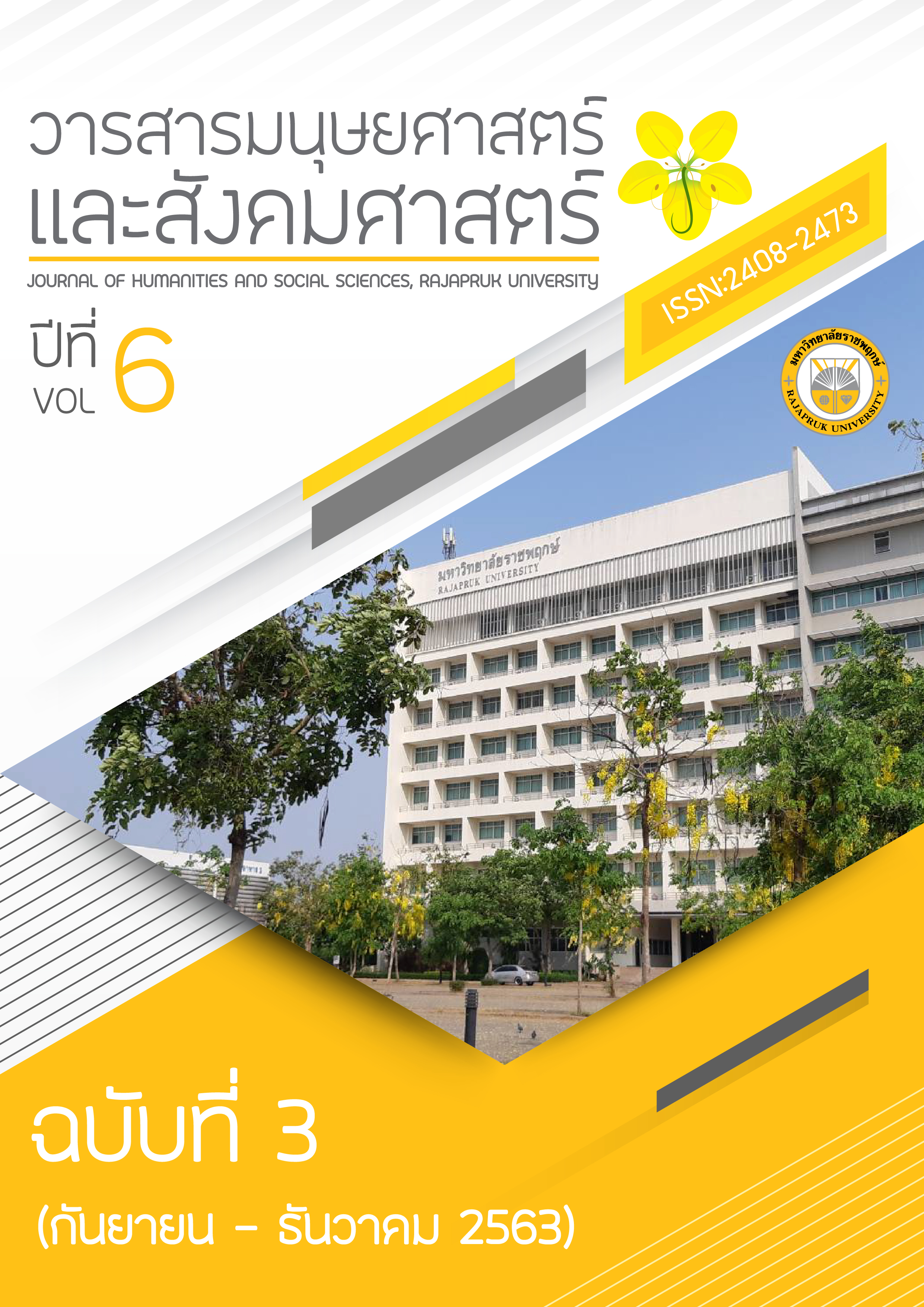The Service Quality in Health Tourism of Natural Hot Spring
Main Article Content
Abstract
This academic article aim to study the service quality in health tourism of natural hot spring source. Health tourism in natural hot springs with recreational purposes have activities to promote or cure. It focuses on physical and mental health, balancing mental and physical conditions. To build the impression and repeat travelling in the future and to be an important role in enhancing the country's tourism and strengthen Thai identity. From the study result, it is found that the service quality in health tourism of natural hot spring source must consider through the health tourism characteristics of natural hot spring sources in 7 areas, as follows: 1) Resources, 2) Activities, 3) Infrastructure, 4) Cost, 5) Communication, 6) People and, 7) Process. Additionally, it is needed to have a model of service quality measurement consisting of 4 areas such as 1) tangibles, 2) reliability, 3) interest and, 4) skill.
Article Details
References
กรมสนับสนุนบริการสุขภาพ กระทรวงสาธารณสุข. (2560). Wellness Hub Thai Onzen. ค้นเมื่อวันที่ 17 มีนาคม 2563, จาก www.hss.moph.go.th/index2.php
ชยาภรณ์ ธีรเวชพลกุล และ ไพฑูรย์ เจตธำรงชัย. (2561). กลยุทธ์การตลาดเพื่อส่งเสริมการท่องเที่ยวเชิงส่งเสริมสุขภาพในพื้นที่อำเภอเมืองระนองจังหวัดระนอง. วารสารรัชภาคย์, 12(27): 85-100.
วรรณา วงษ์วานิช. (2546). ภูมิศาสตร์การท่องเที่ยว. พิมพ์ครั้งที่ 2. กรุงเทพฯ: มหาวิทยาลัย ธรรมศาสตร์.
วาสนา ขวัญทองยิ้ม และ พีรวัส หนูเกตุ. (2560). ความคาดหวังของนักท่องเที่ยวที่มีต่อการจัดการแหล่งท่องเที่ยวเชิงสุขภาพ ประเภทบ่อน้ำร้อนในพื้นที่ภาคใต้ฝั่งอันดามัน. ประชุมวิชาการด้านมนุษยศาสตร์และสังคมศาสตร์ระดับชาติ ครั้งที่ 2. วันที่ 5-6 สิงหาคม 2560 ณ หอประชุมเฉลิมพระเกียรติ 80 พรรษา 5 ธันวาคม 2560, มหาวิทยาลัยราชภัฏสงขลา.
สำนักงานปลัดกระทรวงการท่องเที่ยวและกีฬา. (2559). การท่องเที่ยวเชิงสุขภาพ (Wellness Tourism). รายงานสภาวะเศรษฐกิจท่องเที่ยว Tourism Economic Review. ฉบับที่ 3 มกราคม-มีนาคม 2559: 30-43.
Global Wellness Institute. (2015). The Global Wellness Tourism Economy Report 2013 & 2014. Miami: GWI.
Lewis, Mark and Parooj Bloom. (1983). Organization Behavior. New York: Mc Graw Hill.
Never-age.com. (2557). ผ่อนคลายจิตใจน้ำพุร้อนและวารีบำบัด. ค้นเมื่อวันที่ 10 สิงหาคม 2563, จาก http://www.never-age.com/ผ่อนคลายจิตใจน้ำ
Parasuraman, A., Zeithaml, V.A., & Berry, L.L. (2013). A Conceptual Model of Service Quality and Its Implications for Future Research. Journal of Marketing, 49(41): 50.
Perreault, W.D. and McCarthy, Jr. E. J. (2002). Basic Marketing A Global-Managerial Approach. New York: The McGraw-Hill Company.
Tourism Authority of Thailand. (2012). Tourism Situation. Retrieved on 14th January, 2019, from http://www.2tat.or.th/tourism/web/stat.php


